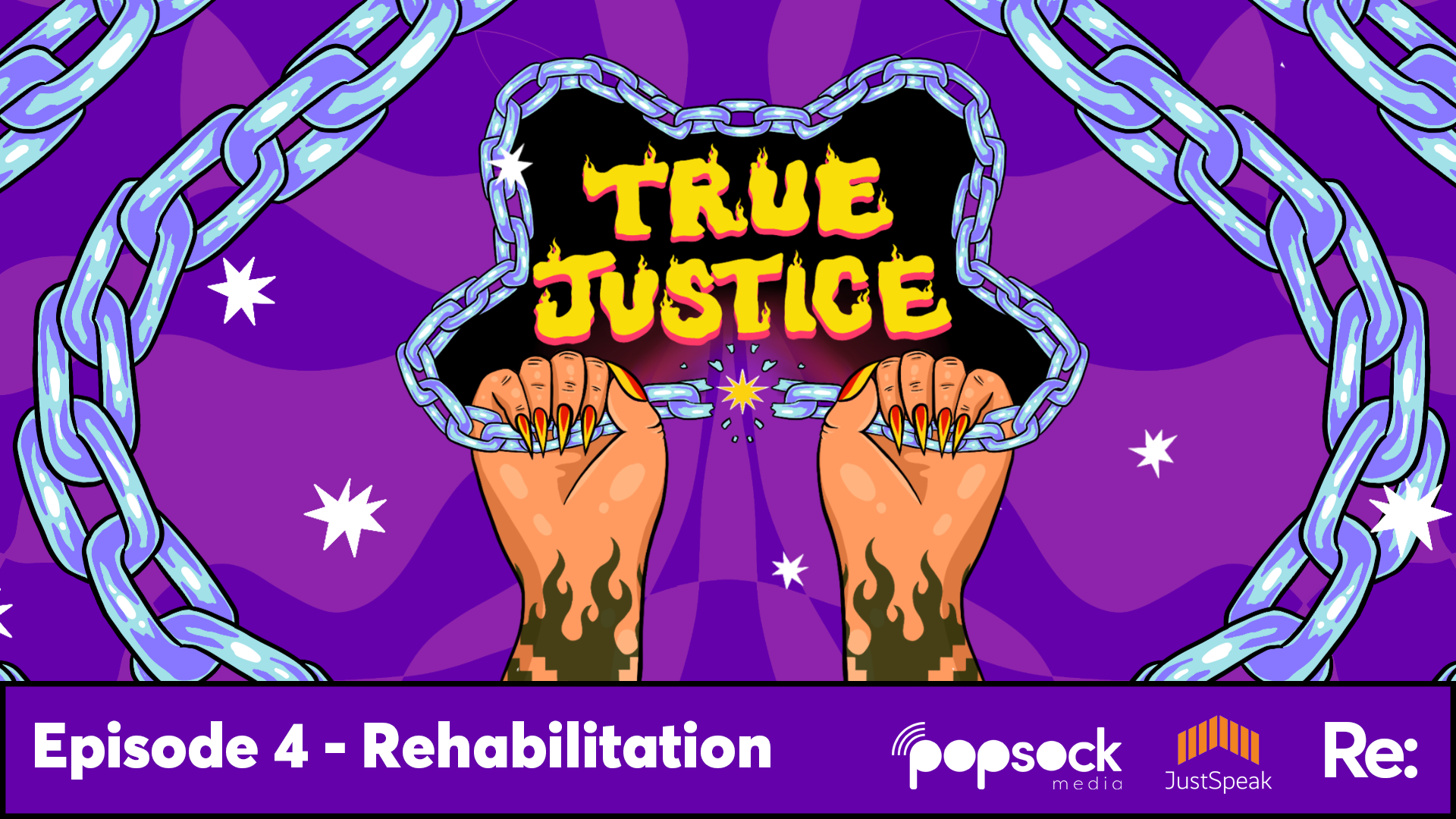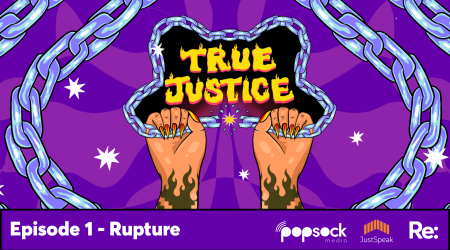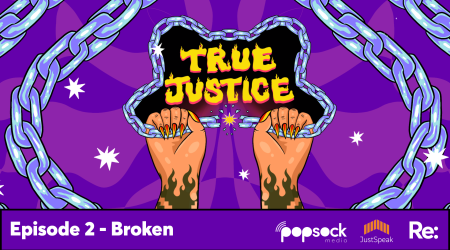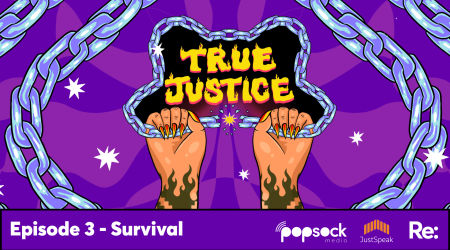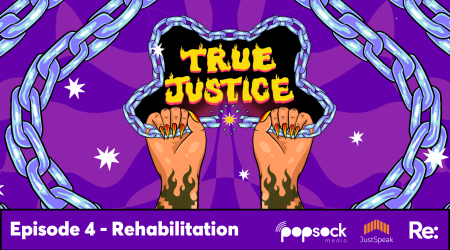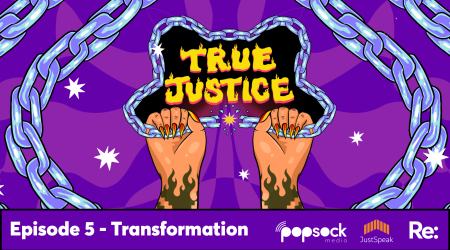‘I did the crime. I deserved the time. But when does that end?’ | True Justice
By JustSpeak and Popsock Media
New Zealanders love true crime. But real life isn’t that straightforward. True Justice is a five-part podcast series that shares the stories of those who have been through our prisons, and advocates for a more just justice system in Aotearoa.
In Episode 4: Rehabilitation, we hear about how prisons aren’t always working well at rehabilitating people, and what things can actually make a difference to stop re-offending.
Even though we’re pretty fond of saying things like ‘You do the crime, you do the time’, the reality for those who’ve been incarcerated is that their time doesn’t finish when they’re released.
The punishment just keeps on giving.
“Even eight years on after getting my shit together and getting clean, and having been through the prison system,” says Olivia, a woman interviewed in the podcast, “you're still faced with the consequences of your actions today.”
“It seemed like punishment after punishment after punishment. That’s where a lot of people continue that vicious cycle, because it's almost accepting that you're treated like shit in prison, but being treated like shit in society you might as well be treated like shit in prison.”
“It's not like you just do your prison time, and then you get on with life,” says Becca, whose story about giving birth in handcuffs was featured in Episode 3.
“It affects jobs, it affects travel, it affects insurance - it doesn’t go away.”
This is what gets called the ‘silent sentence’, and experts say its effects can remain forever.
In 2004 the Clean Slate Act was brought in to try and fix this, but it doesn’t apply to anyone who’s served a custodial sentence in prison, or even in the community with an ankle bracelet.
It also only kicks in after seven years if you manage to avoid any new convictions.
So if you can’t get a clean slate, then every time you apply for a house, or a job, there’s always that little box you have to tick: have you ever received a criminal conviction?
So at every turn you’re having to tell people that you have, and then face their potential judgement.
You turn up to a flat viewing and there’s 100 other people there - the landlord might want to immediately throw your application in the bin if you’ve got a conviction.
And if you don’t have housing, you’re more likely to go back inside. One study in Australia showed that unstable housing makes you almost three times more likely to end up in prison again within a year.
And there’s other things too, like trying to get car insurance. You have to disclose your history again, and then lots of insurers might refuse to offer a policy based on your criminal record.
So you could buy a car, but not get insurance, and then what happens if you have a crash? It can be easy to imagine how things could spiral pretty quickly.
And there’s all the stigma to deal with.
“It's real easy to fall back into the trap when all you feel like is that you're getting pushed back into the trap,” says Blain.
“Like if I save a bus full of kids that was on fire, and I ran in there and saved all these kids, that article and would still read ‘Ex-criminal saves kids’. Because, like ‘A normal citizen’ wouldn't read quite as good in the media, you know.”
As Blain says, “100% I did the crime. I deserved the time. But when does that end? That's the biggest thing.”
To hear more stories from people who’ve been to prison in New Zealand, listen now to True Justice, a five-part podcast series that shares the stories of those who have been through our prisons, and advocates for a more just justice system in Aotearoa.
Where to get help:
- 1737: The nationwide, 24/7 mental health support line. Call or text 1737 to speak to a trained counsellor.
- Suicide Crisis Line: Free call 0508 TAUTOKO or 0508 828 865. Nationwide 24/7 support line operated by experienced counsellors with advanced suicide prevention training.
- Youthline: Free call 0800 376 633, free text 234. Nationwide service focused on supporting young people.
- OUTLine NZ: Freephone 0800 OUTLINE (0800 688 5463). National service that helps LGBTIQ+ New Zealanders access support, information and a sense of community.
- Alcohol Drug Helpline: call 0800 787 797 or free text 8681 for a free, confidential text conversation
- Alcohol Drug Māori Helpline: 0800 787 798 for advice and referral to kaupapa Māori services
- Alcohol Drug Pasifika Helpline: 0800 787 799 for advice and referral to services developed for Pacific people
- Alcohol Drug Youth Helpline: 0800 787 984 for advice and referral to services for young people
